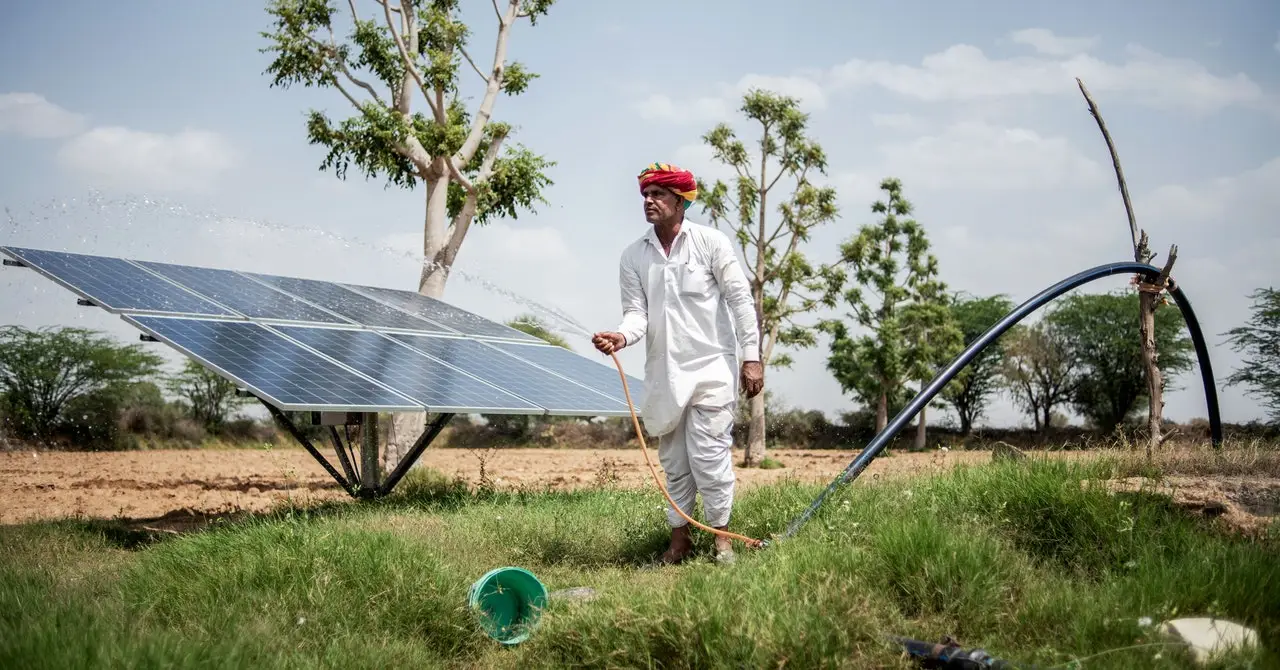Solar pumps are spreading rapidly among rural communities in many water-starved regions across India, Africa, and elsewhere. These devices can tap underground water all day long at no charge, without government scrutiny.
For now, they can be great news for farmers, with the potential to transform agriculture and improve food security. The pumps can supply water throughout the daylight hours, extending their croplands into deserts, ending their reliance on unpredictable rains, and sometimes replacing existing costly-to-operate diesel or grid-powered pumps.
But this solar-powered hydrological revolution is emptying already-stressed underground water reserves—also known as groundwaters or aquifers. The very success of solar pumps is “threatening the viability of many aquifers already at risk of running dry,” Soumya Balasubramanya, an economist at the World Bank with extensive experience of water policy, warned in January.
An innovation that initially looked capable of reducing fossil-fuel consumption while also helping farmers prosper is rapidly turning into an environmental time bomb.



We’ve got endless solutions already we could use and even more in the pipelines, things like vertical farming is already huge for many crops and only getting more popular as is intermixed land use - as automation continues to boom we’re only going to see more of these especially as construction becomes more automated.
A lot of traditionally space hogging land uses are on their way out, factories are far smaller than they used to be for example with much larger output. This trend is certain to increase as mult-tool automation and task based processing gain ubiquity. That’s a lot of room for vertical farming even before we start using autonomous tools to cheaply convert subterranean spaces - water cycling and environmental control reduce the water use to less than one percent of traditional agriculture while removing the need for pesticides.
Even without that automation will increase yield significantly, very likely also make it easier to the point where we become used to seeing food grown throughout cities and harvested by robots - why waste a south facing wall when you could either grow food on it yourself or rent it to someone for a share of the yield.
There are endless solutions to the fear you mention. Unfortunately, the greed and selfishness of our current system means we’re fighting for scraps rather than moving forward to improve things for all but people have always been awful and we got this far.